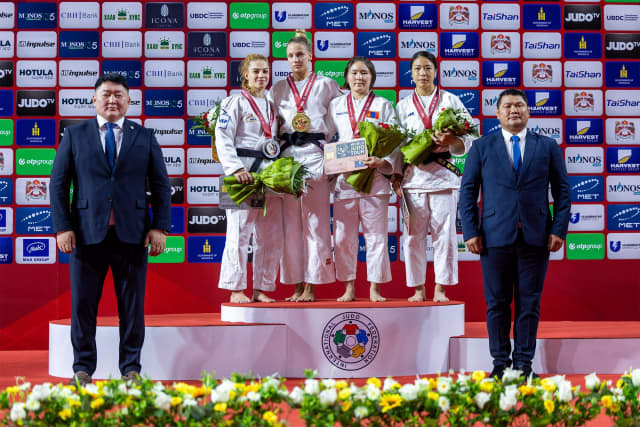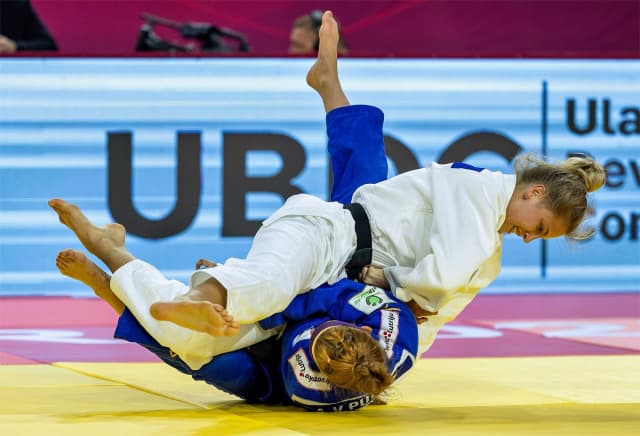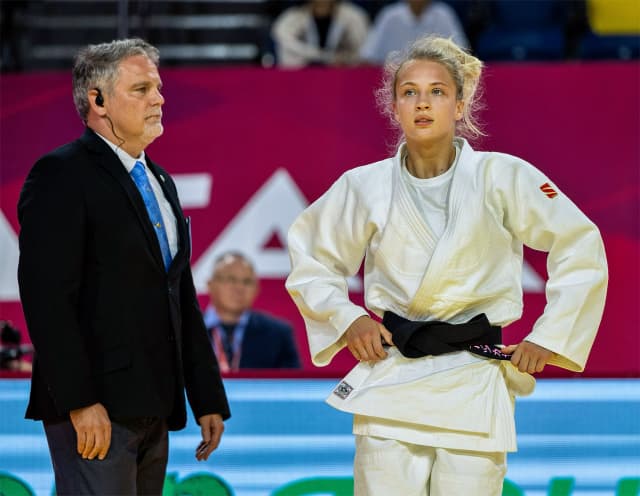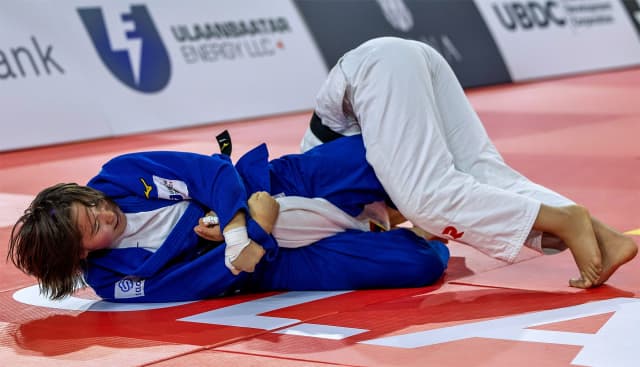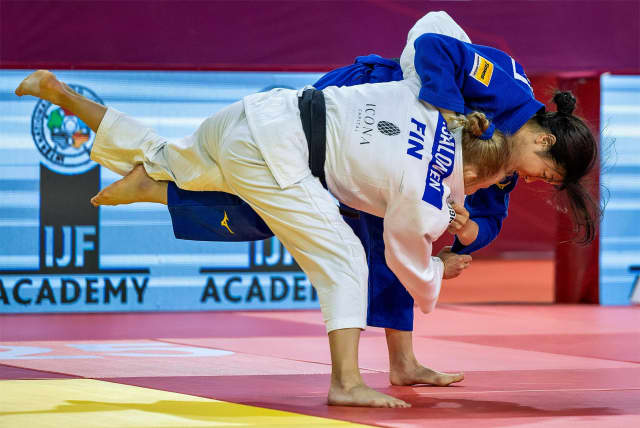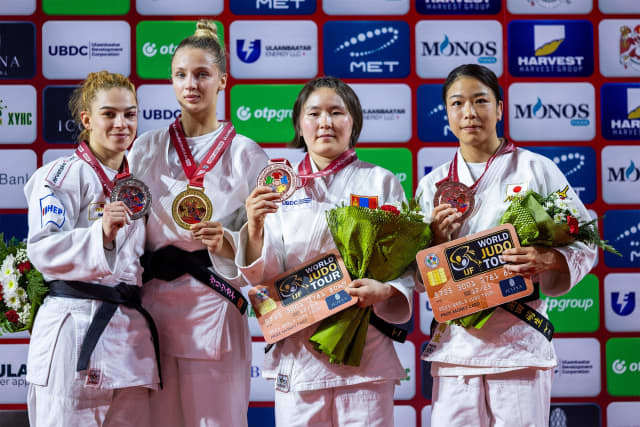Kseniia Galitskaia (IJF) and Ana Viktorija Puljiz (CRO) struggled with each other for the first minute but then Galitskaia got into her stride. Her long levers and awkward left-sided gripping were employed more and more successfully and this forced Puljiz to raise her own pace. She attacked with a ko-soto-gake but Galitskaia was ready and countered with an uchi-mata-to-o-uchi-gari movement which score waza-ari; the choice of attack was a big mistake from Puljiz.
Puljiz did everything she could to reclaim the scoreboard, piling on the pressure, but it wasn’t enough. Galitskaia kept the distance well and will leave the stadium as today’s -57 kg gold medallist.
From the end of the preliminaries, the Mongolian organisers knew they were guaranteed a medal in the -57 kg category because Nomintuya Enkhbaatar and Sosorbaram Lkhagvasuren would fight for the same bronze medal. The former opened the scoring, a yuko from a ko-soto-gake, but it didn’t last long as the more experienced of the two, Lkhagvasuren, followed through on one exchange all the way to the ground and latched on to Enkhbaatar’s arm for a submission. Lkhagvasuren adds an 8th grand slam medal to her CV.
The last bronze medal contest of the day featured Japan’s Megumi Fuchida and Finland’s Pihla Salonen. Twenty-two year old Salonen has been getting closer and closer to the podium, 5th place in Dushanbe this year and 7th at the World Championships but the medals continue to evade her. Out-gripped from the beginning of the match, she found spaces to attack with her kata-guruma but not strongly enough and Fuchida used her excellent ne-waza to turn and hold the Finnish athlete. Fuchida has her third grand slam medal.
